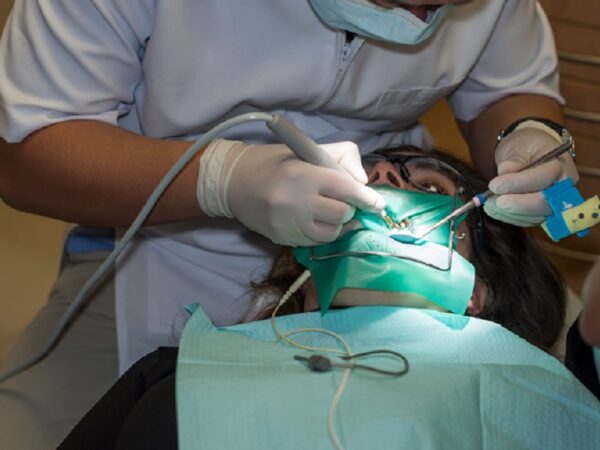Did you know that infections are not just limited to your body, but can also occur in your teeth? Infections in the teeth can be debilitating; they are painful and can spread around the mouth very quickly, sometimes even progressing down to the neck. It is pivotal that if you suspect you have an infection in the pulp (centre) of your tooth, you contact your dentist Meath for an urgent appointment as the longer you neglect the infection, the worse it will become.
Why are root canal treatments important?
Infections that emerge in the middle of your tooth are usually initiated by bacteria that reside in the mouth and occupy the tooth when there is a gateway to the interior of the tooth; this usually occurs due damage which can be caused by tooth decay, leaking fillings and trauma to the tooth. The centre of the tooth consists of a soft tissue referred to as dental pulp; a root canal treatment becomes essential when dental x-rays display damage to the pulp by a bacterial infection. Your dentist will know that the pulp is infected as it will become inflamed and sometimes cause the tooth to become discoloured.
What are the signs and symptoms of a pulp infection?
It is important to look out for signs that may suggest that you have an infection in the pulp of your tooth. One of the common signs of a tooth pulp infection is when you find it painful to eat or drink hot or cold food and drink; this is due to an increase in tooth sensitivity. Other very significant signs include experiencing pain whilst biting or chewing and when your teeth start becoming loose for no apparent reason. You may also notice common signs of infection including inflammation, pain and pus on the gum that surrounds the tooth that is infected.
It is important to contact your dentist straight away if you experience any of these symptoms as the longer the infection has to progress, the symptoms have the ability to disappear because the pulp dies, but the infection will still remain and spread. When the pulp dies and there are no visible signs of infection, a lot of people wrongly assume that the infection has cleared however in reality, the infection actually continues to spread through the root canal system which then causes extra symptoms such as the reappearance of pain when you chew, swelling of the gum near the affected tooth, pus at the site of the affected tooth, swelling of the cheek and the tooth beginning to darken in colour.
Why it is important to contact your dentist when you suspect you have an infection
It is vital that you contact your dentist as soon as you experience toothache so that if the cause of the pain is an infected tooth pulp, it can be managed straight away. In most cases, patients get the all clear and the cause of the pain may not be a pulp infection, however it is still better to catch it rather than neglect it and allow it to progress. As the tooth pulp is unable to heal on its own over time, it can cause additional harm and reduce the risk of a root canal treatment working successfully if the infection becomes more severe. Your dentist will be able to help you manage the symptoms associated with an infected tooth pulp by prescribing you a course of antibiotics to treat the infection that spreads beyond the root and causes swelling of the gums.
How is a root canal treatment done?
To treat an infection in the root canal, the bacteria will need to be removed completely. This can usually be achieved in two ways:
- By removing the bacteria from the root canal system
- By extracting the infected tooth
If you choose to have the bacteria removed from inside your tooth, the area will be numbed using a local anaesthetic to make the procedure as painless as possible. The dentist will then need to remove the infected pulp and will drain out any abscesses that have formed inside the tooth. They can then carry out a deep clean of the root canal and reshape the top of the tooth to make it suitable for a filling or a crown.
Fortunately, most root canal treatments are expected to heal naturally within a few days and the chances of reinfection are slim as the success rate is extremely high. To ensure reinfection or an infection in a separate tooth does not occur, it is pivotal that you maintain a healthy hygiene routine and make regular visits to your dentist.




